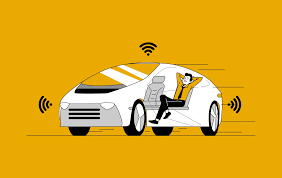Autonomous Vehicles: Transforming the Face of the Auto Industry
12/8/20241 min read


Autonomous vehicles (AVs) are no longer a futuristic concept—they're rapidly becoming a transformative force in the global automotive industry. With advancements in artificial intelligence, machine learning, and sensor technology, self-driving cars are set to redefine how we perceive mobility, safety, and urban planning.
The rise of AVs is shifting the focus from traditional car ownership to shared, on-demand mobility services. Ride-hailing platforms, delivery services, and logistics companies are already investing in autonomous fleets to improve efficiency, reduce labor costs, and enhance customer experiences. As Level 3 autonomy (where the vehicle handles most driving tasks under certain conditions) gains traction, automakers like Mercedes-Benz, BMW, and Tesla are leading the charge in integrating these technologies into commercial models.
Safety is one of the most compelling advantages of autonomous vehicles. Human error is responsible for over 90% of traffic accidents. AVs, equipped with real-time data processing and advanced sensors, promise to drastically reduce these incidents by eliminating distracted or impaired driving.
Moreover, AVs are expected to reshape city infrastructure. With fewer accidents, less congestion, and optimized traffic flow, urban environments could become more livable and sustainable. Parking spaces may be repurposed, and road networks redesigned to prioritize autonomous and electric transport.
However, challenges remain. Regulatory frameworks, cybersecurity concerns, and public trust are critical hurdles that the industry must overcome. Despite these issues, the momentum behind AV innovation is undeniable.
As the technology matures, autonomous vehicles will not just complement the auto industry—they will revolutionize it. They promise a future of smarter, safer, and more efficient transportation that caters to a new era of mobility. The road ahead is autonomous, and it’s already in motion.
Contacts
7992284974
contacts@carparts24.in
